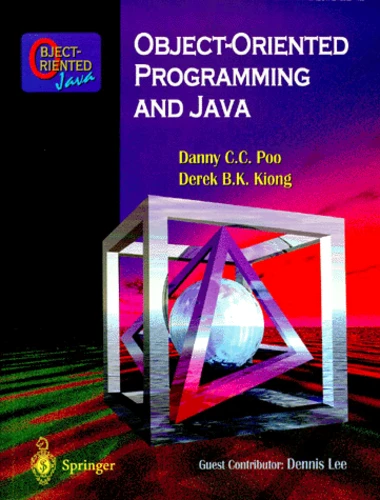OBJECT-ORIENTED PROGRAMMING AND JAVA
Par : ,Formats :
- Paiement en ligne :
- Livraison à domicile ou en point Mondial Relay indisponible
- Retrait Click and Collect en magasin gratuit
- Réservation en ligne avec paiement en magasin :
- Indisponible pour réserver et payer en magasin
- Nombre de pages316
- PrésentationBroché
- Poids0.605 kg
- Dimensions18,0 cm × 23,5 cm × 1,5 cm
- ISBN9813083964
- EAN9789813083967
- Date de parution08/11/1999
- ÉditeurSpringer
Résumé
Object-Oriented Programming and Java teaches two important topics in contemporary software development: object-oriented programming and the Java programming language. The method of teaching object-oriented programming adopted in this book takes a different approach from most available literature. The book begins with the description of real-world object interaction scenarios and explains how they can be translated, represented and executed using object-oriented programming paradigm. Since Java is an object-oriented programming language, it is taught as a language for realizing the many good software engineering principles and concepts as practiced in object-oriented programming. By establishing a solid foundation in the understanding of object-oriented programming concepts and their applications, this book provides readers with the prerequisites for writing good object-oriented programs using Java. This book is suitable for an undergraduate or postgraduate course on object-oriented technology, and in particular, using Java as a programming language for creating object-oriented programs. The book includes two chapters by Guest Contributor, Dennis Lee, Lotus Consulting (Asia Pacific). Dennis is the driving force of the Singapore Java Users Group (http://www.sjug.org/), having found the group with sponsorship from IBM, SUN, Lotus and SinterCom (Singapore Internet Community).
Object-Oriented Programming and Java teaches two important topics in contemporary software development: object-oriented programming and the Java programming language. The method of teaching object-oriented programming adopted in this book takes a different approach from most available literature. The book begins with the description of real-world object interaction scenarios and explains how they can be translated, represented and executed using object-oriented programming paradigm. Since Java is an object-oriented programming language, it is taught as a language for realizing the many good software engineering principles and concepts as practiced in object-oriented programming. By establishing a solid foundation in the understanding of object-oriented programming concepts and their applications, this book provides readers with the prerequisites for writing good object-oriented programs using Java. This book is suitable for an undergraduate or postgraduate course on object-oriented technology, and in particular, using Java as a programming language for creating object-oriented programs. The book includes two chapters by Guest Contributor, Dennis Lee, Lotus Consulting (Asia Pacific). Dennis is the driving force of the Singapore Java Users Group (http://www.sjug.org/), having found the group with sponsorship from IBM, SUN, Lotus and SinterCom (Singapore Internet Community).

